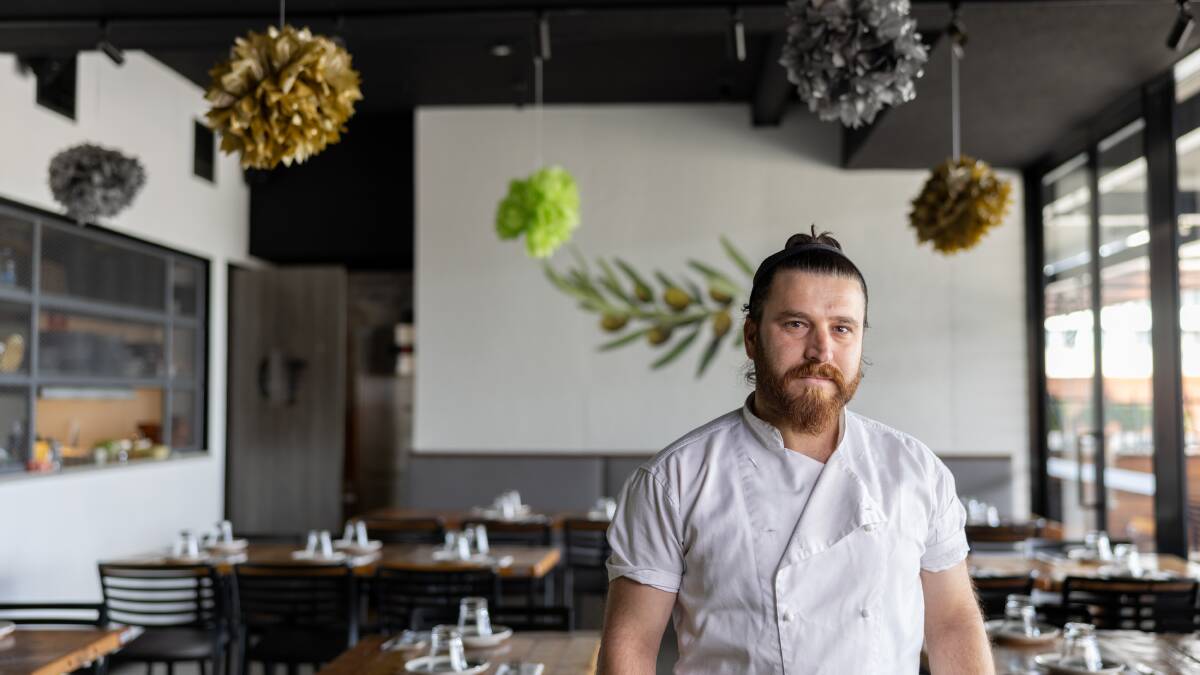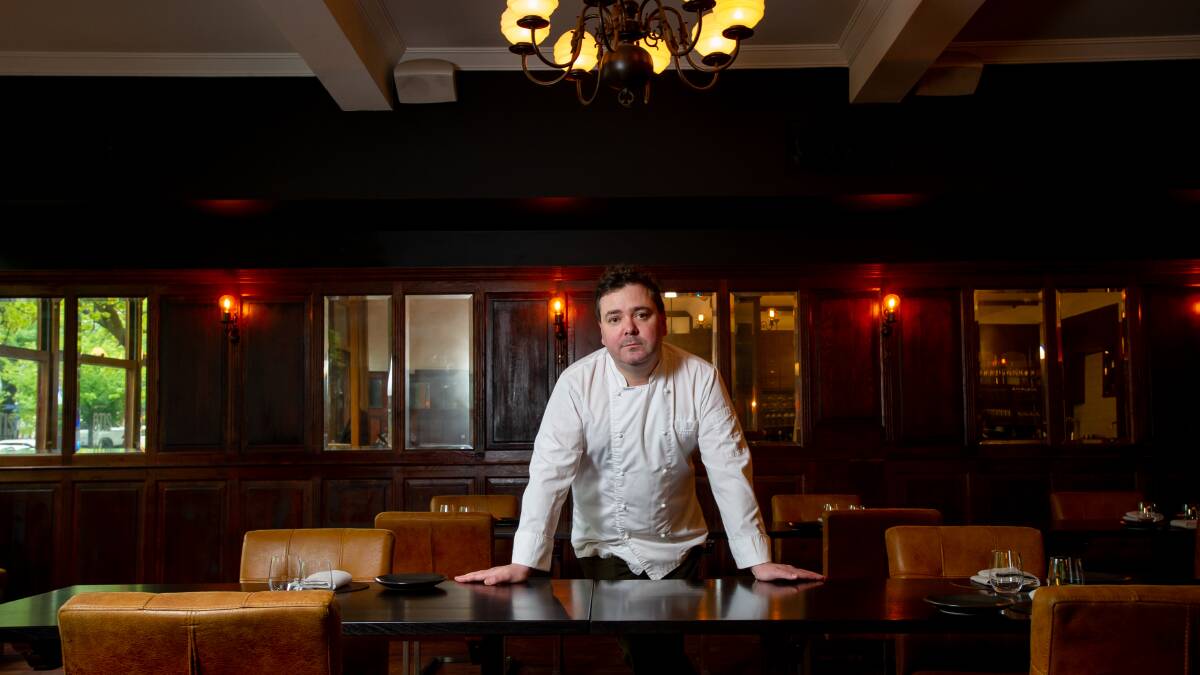
The closure of beloved local dining joints has raised doubts about Canberra's hospitality sector, with fears high-profile businesses are "just the tip of the iceberg".
Polo, Woden's Hog's Breath Cafe, Sammy's Kitchen and Sfoglia all shut their doors in the first weeks of the new year, with Australian Hotels Association ACT branch general manager Anthony Brierley saying Canberra's dining scene was "definitely going to change in the short term".
"With business closures, we've seen some public ones already ... I'm speaking to people and they tell me their businesses are losing about 20 grand a week," Mr Brierley said.
"So what we've heard about publicly so far is really just the tip of the iceberg."
The collapse of long-standing venues in recent weeks, though a loss for the city, did not necessarily define the capital's economic future, ACT Business Minister Tara Cheyne said.
"Businesses ... do open and businesses do close, these are high profile ones that have closed in recent times," Ms Cheyne said.
"But in the previous financial year, we actually had an almost six per cent increase in the number of businesses in the ACT."
Data on the most recent business closures in the capital is lacking, but Australian Securities and Investments Commission statistics on company insolvencies showed 16 in November 2021, up from six in October.
November's figures were a peak over the 12-month period, the next highest being 10 insolvencies recorded in March and April respectively.
Financial support 'a drop in the ocean'
Kingston fine dining restaurant owner Damian Brabender, is among many in the territory who have struggled to keep their doors open after the Omicron variant ferried in surging case numbers over December and January.
The OTIS owner has closed twice due to COVID exposures since the lockdown ended on October 15, including for a week and a half at the end of January, during which he said he lost over $20,000.
"As soon as you lose a couple of people from your team, you literally can't open the doors," Mr Brabender said.
"Once that happens there's just absolutely no business support from the government at all," he said. "So you still have all your overheads: still have your your rent, all your bills."
"And the other side of it as well is if you have to close your business, all that money worth of stock that you've spent that week, you lose all of that."
The ACT government last week extended its Small Business Hardship Scheme to the end of February, allowing eligible businesses with annual turnovers up to $2 million to claim back money for utilities and commercial rates up to $10,000.

Ms Cheyne said the announcement came on the heels of consultations with business representatives, including the AHA.
"These measures that we announced a week and a half ago, that's exactly what those business leaders and traders' associations that we've met with ... asked for," she said.
Ms Cheyne said she would not rule out, nor commit to any further economic support for COVID-affected businesses: "It's just something that we're keeping an eye on."
Low consumer confidence
Asked about claims the financial support on offer was unsubstantial for struggling businesses, Ms Cheyne said consumer behaviour was the focal point for boosting business patronage.
"I think what makes the biggest difference for businesses is consumers coming through the door," she said.
ANU Lecturer in Economics Dr Dana Hanna said anecdotal evidence about Canberrans' compliant nature needed to be factored in to the conversation.
"I think demand has been sustained low just because we're so good at following the rules," Dr Hanna said.
"Canberrans have been overly cautious about returning to cafes, and restaurants and group events, that's just the type of community I guess that we are."
Small but sustained behavioural changes such as making coffee at home rather than buying it out, had contributed to Canberra's wider economic picture, Dr Hanna said.
Mr Brabender said there was demand for bookings, but all of of them were last minute. People had stopped coming in larger groups, he said, with the restaurant now largely catering to tables of two.
Ms Cheyne said consumer confidence would rebound.
"I think we are starting to see a bit of that uptick in the consumer confidence, particularly because it seems that we've reached the peak of the wave," she said.
"Case numbers have come down, hospitalisations are steady, ICU admissions are steady, and going back to school introduces that other level of normality as well."
One last hurdle for business
Mr Brierley said public health restrictions were to blame for lagging patronage in the capital's hospitality venues.
"At the moment those public health restrictions ... are sending a message to people that it's not safe to be out and about in hospitality venues."
Mr Brierley said requirements to wear a mask unless eating or drinking, having to sit down at venues and a ban on dancing were "crippling" the hospitality industry in Canberra.
"When they introduced masks mandates across Canberra for the first time last year... the hospitality industry was actually excluded."
"And that's what we'd like to see again. It's fine if people want to wear a mask elsewhere, but it just cripples the hospitality industry."
Zeytin Turkish Cuisine owner Metin Baran agreed that demand had been low in the first month of the year, as he maneuvered through COVID-19 exposures
"Even today for example we were supposed to open for lunch but I didn't open for lunch, because [there's] no one. No staff, no customers as well," Mr Baran said.
"At the moment, sometimes we don't even have the hope to open the restaurant."
'Less venues, less choice, less product for Canberrans'
The rapidly changed situation in Canberra, after confirming its first Omicron case in December, has left businesses as well as residents in the dark on what the capital's streets will look like in the year ahead.
Mr Brierley said it wasn't clear what the long-term impacts of Omicron's influence would be, but the dining scene would change for the foreseeable future.

"Suppose what happens if these businesses close, we're going to have empty shop fronts obviously, we'll have landlords not being able to derive any rent," he said.
Those who managed to survive could have opportunities to open up new businesses in the changed landscape, but the likelihood of this was low, Mr Brierley added.
"I think there'll be less venues in general, less choice, less product really for Canberrans and for visitors who come to Canberra."
Ms Cheyne said Canberra was in the midst of an "adjustment period".
"I'm sorry to see these businesses go, and I've certainly enjoyed times at many of them, but equally I don't think these business closures are reflective of the broader consumer confidence."







